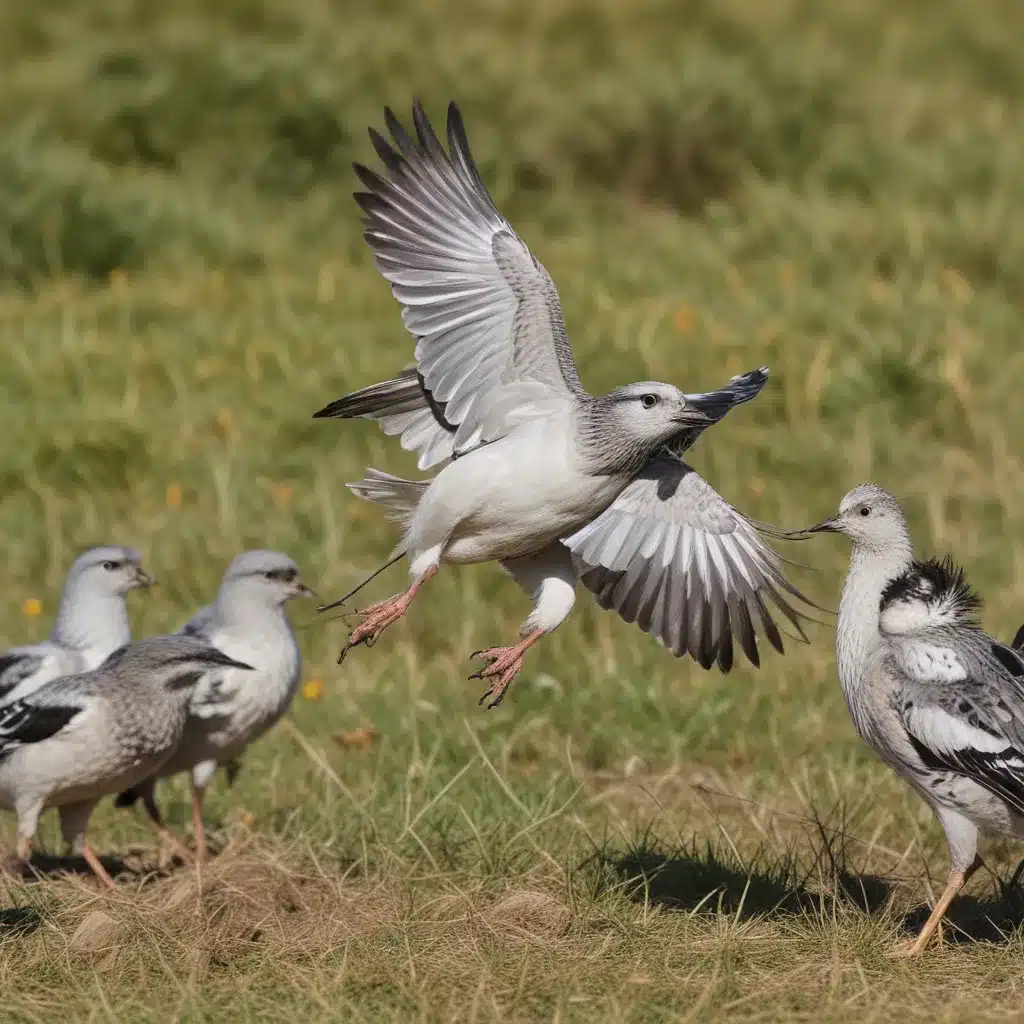
Birds are highly social creatures, and the strength of their social structure is essential for the well-being and survival of wild flocks. This intricate web of interactions and dynamics carries over to captive birds as well, as they view their human “flock” in much the same way. Understanding avian social behavior is key to providing our feathered companions with a fulfilling and enriched life.
Avian Social Dynamics
At the heart of avian socialization lies the flock hierarchy and dominance structure. In the wild, birds establish a clear pecking order, with certain individuals claiming dominance over others. This hierarchy helps maintain order and reduces conflict within the group. Captive birds, though separated from their natural flocks, still instinctively seek to establish these social rankings – often with their human caretakers.
A bird that is only bonded to a single person in the household can develop significant behavioral issues. This “one person bird” may become defensive and aggressive towards other family members, screaming for constant attention and refusing to interact with anyone else. It’s essential to ensure that your bird is, at least to some degree, comfortable and bonded with the entire household.
Birds communicate through a rich repertoire of vocalizations, body language, and physical interactions. Squawks, whistles, and other calls convey a range of emotions and intentions – from excitement and contentment to alarm and aggression. Observing your bird’s vocal and physical cues can provide valuable insights into their social dynamics and emotional state.
Conflict resolution is another critical aspect of avian socialization. In the wild, birds may engage in ritualized displays, posturing, or even brief physical altercations to establish dominance or resolve disputes. In the home environment, it’s important to recognize and address any signs of tension or aggression, such as lunging, feather fluffing, or biting. Positive reinforcement training can be an effective tool for teaching birds appropriate social behaviors.
Avian Developmental Stages
The socialization process begins early in a bird’s life, with the critical nestling and fledgling periods. During these formative stages, young birds learn crucial social skills from their parents and flockmates, developing the foundation for future interactions.
As birds transition into the juvenile stage, they begin to explore their independence and establish their place within the social hierarchy. This phase is marked by increased play, experimentation, and occasional conflicts as they navigate the complexities of group dynamics.
The adult stage brings the opportunity for pair formation and breeding. Pairs will often develop strong, lifelong bonds, working together to build nests, incubate eggs, and care for their young. Understanding these natural developmental stages can help guide our approach to socializing and enriching the lives of our captive birds.
Environmental Factors in Avian Socialization
The habitat characteristics of a bird’s environment play a significant role in their social development and interactions. In the wild, factors such as available nesting sites, food sources, and predator threats shape the way birds organize and interact within their flocks.
Captive birds, while removed from these natural pressures, are still influenced by the characteristics of their human-provided environments. The size, layout, and resources available in a bird’s enclosure can impact their comfort, confidence, and willingness to engage with both their human and avian “flock” members.
Seasonal changes can also influence avian social dynamics. During breeding season, for example, birds may become more territorial and defensive, even towards their regular human caretakers. Recognizing these natural fluctuations and adjusting our interactions accordingly is crucial for maintaining positive relationships.
Positive Reinforcement Training for Flocks
One of the most effective tools for fostering positive social interactions in a captive avian flock is the use of positive reinforcement training. By establishing trust and building bonds through rewarding desirable behaviors, we can encourage our birds to engage with us and with each other in healthy, enriching ways.
The foundation of this approach is to create an environment where birds feel safe, comfortable, and confident. Through consistent, gentle handling and the use of high-value rewards, we can gradually introduce new experiences and interactions, gradually expanding their social comfort zone.
Engaging birds in enrichment activities, such as foraging, puzzle-solving, or even simple playtime, can also serve to strengthen social bonds and promote positive interactions. By working together, whether with their human caretakers or avian flockmates, birds develop a sense of cooperation, trust, and mutual understanding.
Carefully managing group dynamics is also essential. Recognizing and addressing any signs of tension or aggression, and providing appropriate outlets for natural behaviors, can help prevent the development of behavioral issues and foster a harmonious avian community.
Conclusion
Avian socialization is a complex and multifaceted aspect of caring for our feathered companions. By understanding the intricate dynamics of avian social structures, developmental stages, and environmental influences, we can create enriching, fulfilling lives for our birds – both as individuals and as members of a thriving flock.
Through the judicious use of positive reinforcement training, thoughtful habitat design, and a keen eye for reading our birds’ social cues, we can cultivate a harmonious, healthy, and mutually rewarding relationship between our birds and their human “flock.” With patience, dedication, and a deep appreciation for the natural social needs of these remarkable creatures, we can ensure that our avian friends truly thrive.
For more information and resources on avian care and socialization, be sure to visit Mika Birds Farm. Our team of experienced avian experts is always here to provide guidance and support, helping you and your feathered family members enjoy a lifetime of companionship.


